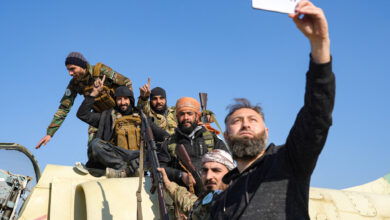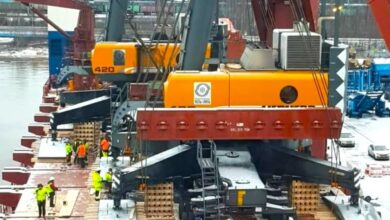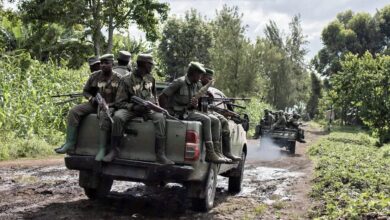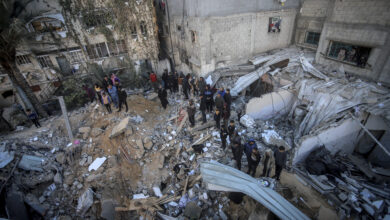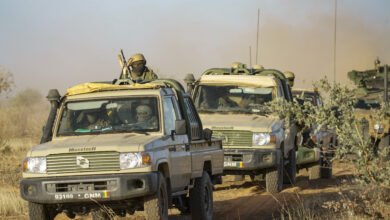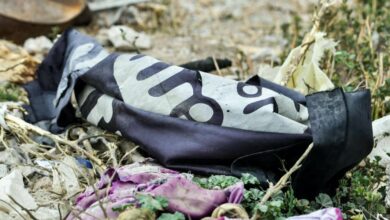New IRA admits killing of Northern Ireland journalist in Derry shooting
A dissident Irish republican group known as the New IRA has admitted shooting to death journalist Lyra McKee during rioting last week in the Northern Ireland city of Derry.
Using a recognized codeword, the group admitted one of its members had killed 29-year-old McKee, the Irish News reported on Monday, April 23.
McKee was shot on Thursday by an unknown gunman who was firing at police in the Creggan area of Derry, also known as Londonderry, on April 18. She later died from her injuries in hospital.
The Police Service of Northern Ireland said at the time they believed that she was murdered “by a violent dissident republican,” and that the New IRA was the group behind the attack.
In its statement to the Irish News, the paramilitary group apologized to McKee’s family but tried to justify the shooting, saying the journalist “was tragically killed while standing beside enemy forces” during the melee.
McKee was standing next to a police armored vehicle when she was shot in the head.
Creggan is an Irish republican heartland and a crowd had gathered on Thursday after police conducted a major operation and house searches in Mulroy Gardens, and petrol bombs, fireworks and stones were thrown at police on nearby Fanad Drive.
PSNI Assistant Chief Constable Mark Hamilton said Friday that the searches, which began just after 9 p.m. (2000 GMT) “were being carried out because we believed that violent dissident republicans were storing firearms and explosives for a number of planned attacks and these may have been used over the Easter weekend in the city.”
The PSNI are treating the shooting as a terrorist incident and earlier Monday said that a 57-year-old woman had been arrested in connection with the incident. Two men, aged 18 and 19, who were arrested over the weekend under the Terrorism Act were later released without charge.
The New IRA is the largest dissident Irish republican paramilitary group, formed in 2012 after a merger of several smaller groups with the Real IRA.
In January, a car bomb exploded outside a courthouse in Derry, an attack also blamed on the New IRA.
Since then, a number of weapons caches have been uncovered in the southeast of Northern Ireland and just across the border in Ireland.
On April 8, Police Service of Northern Ireland officers recovered a horizontal mortar tube and command wire during an operation near Castlewellan in County Down.
A month earlier, the PSNI uncovered what they called a “significant terrorist hide” of mortar parts, including tubes, in a forested area near Forkhill close to the border on March 6.
A week prior, police uncovered a “sizeable” quantity of ammunition during a search near Omeath in County Louth as part of a follow-up operation targeting the activities of dissident Irish republican groups after Gardaí (Irish police) found a mortar tube and a “substantial” quantity of ammunition in the area on February 1.
Dissident Irish republicans have also taken credit for a series of explosive devices sent to Great Britain in March, with the New IRA claiming they sent four mail bombs that were recovered in London and Glasgow. A fifth “viable device” was discovered at the National Returns Letter Centre in Limerick after it had been returned by the postal service from the United Kingdom.
The 1998 Good Friday or Belfast Agreement ended what is known as The Troubles, three decades of violence in Northern Ireland beginning in the late 1960s in which more than 3,500 people were killed, the majority by predominantly Catholic Irish republicans who want the reunification of Ireland, but also by mainly Protestant loyalists who want Northern Ireland to remain part of the United Kingdom, as well as the security forces.
The violence also spilled over into Ireland, the United Kingdom mainland, and Europe.
The Irish Republican Army called a final ceasefire in 1997 and announced an end to its armed campaign in 2005, stating that it would seek to achieve its aims through peaceful political means, but various dissident Irish republican groups opposed to the peace process have continued to use the name IRA, and there have been sporadic violent incidents since.
Police in Northern Ireland and Ireland have said that a return to a hard border on the island after Brexit could result in an increase in attacks by militant groups.



